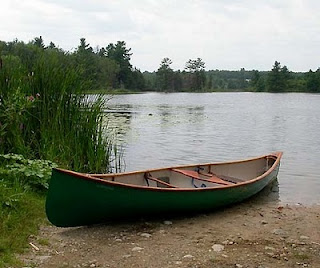At 20, I decided to change my studies from Journalism at Carleton University Ottawa University of British Columbia Vancouver Vancouver Winnipeg , Manitoba
The Manitoba Winnipeg Manitoba Cranberry Portage
The program that I was hired on had two very different goals for three groups of students. The first goal over the initial two two-week terms was to help native children from isolated northern communities adjust to a more structured classroom environment. The participants would have to leave their rural homes and move to larger towns and cities in order to complete their secondary school education, and we were supposed to assist them in this major transition in their young lives. The second goal of the third and final term was to give kids from Winnipeg
I was responsible for instructing the kids in mathematics, a subject that I enjoy and, given the level, felt qualified to teach. As for outdoor activities, I was supposed to train everyone in canoeing, including the intricacies of canoe-over-canoe rescue techniques just in case a craft started to sink. But there was a slight problem: I couldn’t tell which end of a canoe was the front!
Fortunately, we were given a crash course in “how to hold a paddle” and by the time the first group of children arrived I was ready to impart my newfound wisdom on them, or so I thought. As it turned out, the children taught me some things since all of them were at home in a canoe. Some even helped their parents manage trap lines (fur trading was a source of income for many of their families), skillfully gliding their boats over lakes and rivers much better than I ever would.
The children were from one of Canada
Working with these kids I began to realize that I didn’t need to wander far to experience a completely new world. They told me which plants were edible as we trudged along forest paths. They explained the complex process of skinning an animal then tanning the pelt so that it could be used for clothing. I was taught how to cook a beaver (you boil the meat first to remove the large amount of fat) and I even learned how to do traditional Cree beadwork, a hobby I enjoy to this day. Each of these activities was important in their culture but the language needed sometimes did not even exist in English.
Learners of a new language may desperately search for an equivalent meaning in their mother tongue for every word or phrase. Too often they view unique items with frustration asking “How do you say this?” when there is no exact answer. Each language is filled with culturally-based terms and concepts which cannot be translated directly. You just have to accept them at face value, developing an innate understanding, a “feel” for the meaning based on the context and examples around you.
I recently spent time in Sofia , Bulgaria
“Well, someone who is kind of hard-headed.”
“No, more like strict… or serious.”
“Kind of uptight.”
“Yes, but not mean or nasty.”
This went on for a while and I began to panic. Then I looked across at the young woman they were referring to. Confident, organized, a person who helps but does not suffer fools. Ah, “sert”!
Unique terms like “sert” should be appreciated for the special “flavour” they impart to a language. They are a gift of knowledge and help you to better understand a culture.
A few years ago, Tomson Highway, a prominent Canadian author of Cree descent, stayed at my home in Japan Manitoba



french translation service If I were you, I would see the best writer job service to have a lot of supreme data about this good topic!
ReplyDelete